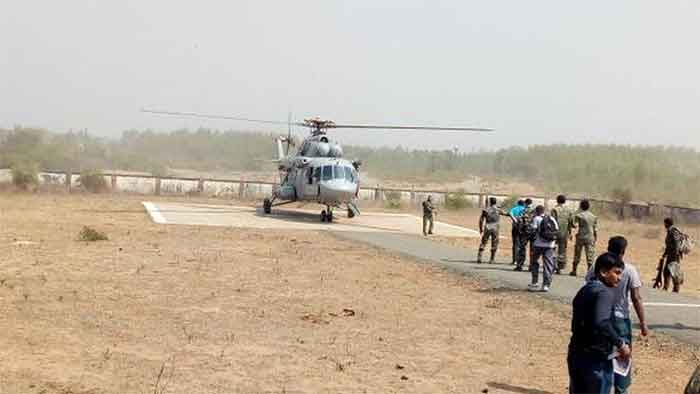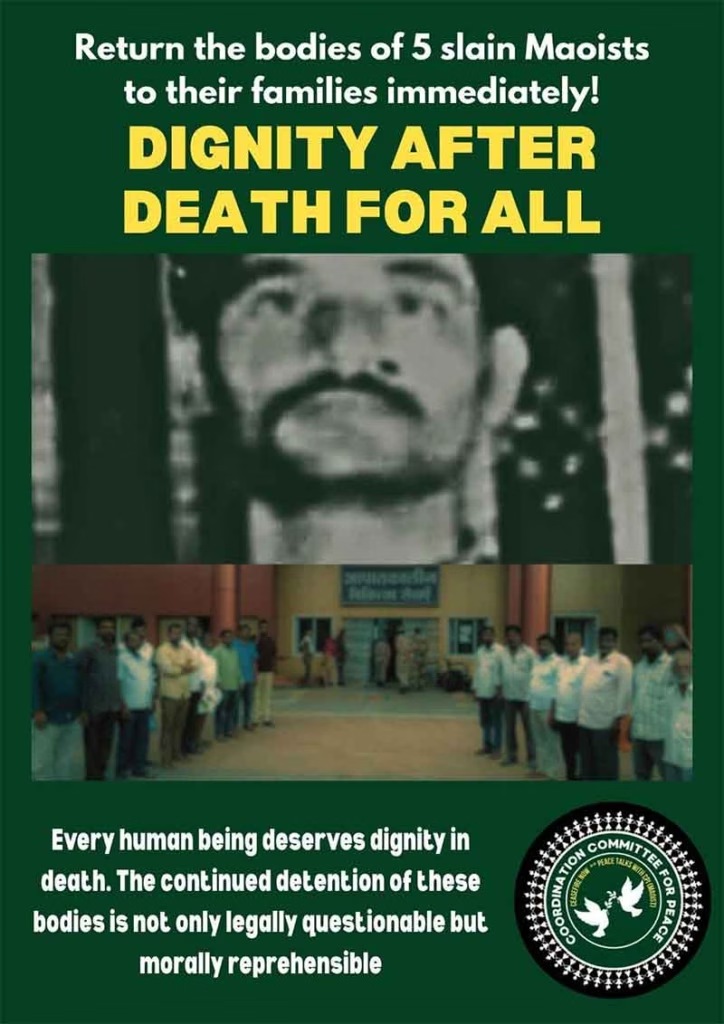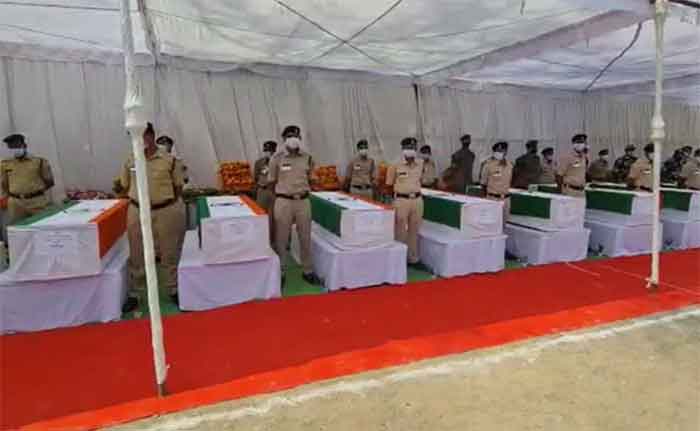
In the region known as ‘Dandakaranya’, spanning states like Chhattisgarh, Telangana, Maharashtra, Madhya Pradesh, Andhra Pradesh, and Odisha, a conflict resembling a war has been ongoing for several years between the central government and the Maoists. This war has already claimed thousands of lives. We have recently heard that this conflict has intensified in the dense forest-covered Karre Hills region between Chhattisgarh and Telangana.
On one side of this conflict are the armed forces led by the central and state governments, and on the other are the tribals led by the Maoist party. Although these two sides are not traditional enemies, their clashing interests and confrontations have led to war. War has become the only path since both parties pursue different class interests.
From the beginning, we’ve heard that the government aims to hand over forested and mineral-rich regions beneath hills to profit-driven capitalist corporations. The mining these companies undertake displaces the tribal people, leading to the start of conflict. As forests are destroyed, tribals are left without shelter or means of livelihood from the forest resources. Maoists have taken the side of these tribals, opposing the government’s policy—this has become the root cause of today’s war.
Who are the ones dying and getting injured in this war? Revolutionary fighters were on one side, and government police were on the other, both mostly from working-class families. For example, all tribals are working-class people, and the Maoists supporting them also come from similar backgrounds. Even among the police, the ones who carry guns and fight against tribal lives, and the lower-level officers, also come from working-class families.
Police follow their duty as a job. As the revolutionary poet Cherabandaraju put it, they became police “for a livelihood.” These police, however, are working against their class interests, supporting ruling-class exploitation. That is their means of survival. On the other hand, Maoists fight not for salary, promotions, pensions, posthumous compensation, or medals, but to protect millions of tribals. Their struggle is based on ideological commitment. Yet, governments strive to maintain the ‘exploitation of labour’ path. This truth is explained in the Manifesto of the Communist Party of 1848 by Marx and Engels. Today, we see that very same reality unfolding in Karre Hills.
So, what are these deaths for? On what grounds? Shouldn’t the working-class people of the plains—those outside the forests and hills—support the side that is just? Indeed, not the government that defends exploitation. Logically, the problem of forest destruction is not limited to forest dwellers alone—it concerns people of the plains too.
Environmental scientists have long demonstrated numerous examples of how forest destruction harms all life on Earth. However, many thinkers fail to realize even today how the profit-driven capitalist system causes societal harm. Marx explains how, in the capitalist mode of production, industries destroy forests extensively: “The development of capitalist industry has destroyed forests so energetically that efforts made by the industry itself to restore or protect them are insignificant in comparison” (from Capital Vol. 2, 1872, in the chapter on ‘Production Time’). From this perspective, even if their clarity is imperfect, the struggle of tribals and Maoists to protect forests is immensely valuable.
However, despite sacrificing their lives, Maoists have never properly embraced revolutionary ideas along the path laid out by Marx. They followed the path their early leader, Charu Majumdar, set in one form or another. Since the Naxalbari movement, Maoists have not led class organizations or mass organizations with a logical vision. They did not systematically try to raise people’s consciousness over time, and dismissed such efforts as ‘economism’. They failed to teach people the right ideology properly. They promoted slogans like “armed struggle is the only path” even within legal mass organizations, portraying it as heroic. Like Lin Piao, they dismissed the relevance of works like Capital, assuming that Maoist thought alone is sufficient for semi-feudal, semi-colonial countries, and they ignored the original works of Marx and Engels. They branded their line ‘Mao’s thought’ but made no effort to engage with other like-minded revolutionary groups or work collaboratively, even in hard times. About 20 years ago, they engaged in ‘talks’ with governments that only used them as a pretext to learn about Maoist hideouts and eliminate key figures.
Due to many such flawed political practices, today we face this tragic situation. However, this is not merely because governments use advanced technologies like drones. Consider Vietnam—despite the US deploying the most modern technologies and committing mass killings, didn’t the people there ultimately win? Success or failure is not determined by technology, but by whether or not there is a firm mass base. People should have been mobilized not only in tribal areas but also in the plains through class and mass organizations. Because that did not happen, today, even as thousands of activists die, the public remains largely unresponsive.
Even so, rights organizations and intellectuals must do their part to expose the massacre being carried out by the government against tribals and Maoists. This is necessary because the cause—tribal rights and forest protection—is just. Therefore, support must not take the form of pleading with the government to initiate peace talks. Instead, public pressure should be built, demanding that the government not treat its people like enemy nations. Perhaps this could offer some relief, although it may be too late now.
Moreover, history has repeatedly shown that the state exists as an instrument for one enemy class to suppress another. Still, if people from the plains protest against the government’s forest destruction in the name of ‘development’, even that would amount to offering moral support to Maoists. It may already be too late.
In such tragic circumstances as these, we may derive courage from Marx’s words, which he wrote after the fall of the Paris Commune:
“The working class knows that it must go through various stages of struggle… that the abolition of the economic conditions of slavery of labour is a progressive effort that will take time… and that setbacks and obstacles will arise repeatedly due to selfish powers and class interests.”
Subscribe to Our Newsletter
Get the latest CounterCurrents updates delivered straight to your inbox.
Ranganayakamma is a renowned Telugu author
(Telugu original appeared in Andhra Jyothy, daily dt. 29-4-2025)















































